That attitude can greatly bless the lives of us LDS singles as we interact with each other. Too often we see opportunities to interact through the lens of dating, which often pulls us away from blessing others’ lives. Seeing through the lens of friendship, we’ll more often provide needed assistance. It’s time for LDS singles to re-hoist friendship in dating and singles groups. Just listen 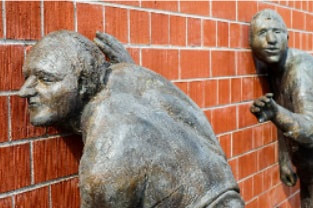 In the video, John admits he couldn’t “fix” Troy, nor did he attempt to. In fact, the casual observer might conclude John didn’t do much at all. John certainly wanted to help, but given everything so many others were doing, John didn’t see much for him to do. Then he started doing something more of us need to do more often; he listened. John invited Troy to ride with him in his truck and let Troy say whatever he wanted. John simply listened. There’s probably a lot the video doesn’t show. But the simple act of listening is beyond profound. We all have a basic human need to be heard and to feel understood. By not directing Troy or trying to give him something, John showed complete respect for Troy’s agency. And by simply listening to Troy, John declared he would stand by Troy regardless of the path Troy chose or what pace he pursued. That’s the mark of a true friend. What blessing could we be to other LDS singles if we simply listened more? Instead of interacting only with those whom we want to date, what if we interacted with everyone with an interest in understanding them or simply letting them be heard? By putting aside the personal agenda, we re-hoist friendship to its rightful valued place. See sameness  Many LDS singles see a duality in their local Church community, especially in geographic wards. There’s the singles and the marrieds. It’s an extremely common perspective among singles. But the story in the video takes a different perspective. The two groups there were the grieving (Troy and his family) and the supporters (everyone else trying to help). That’s significant. John viewed Troy as a brother, not someone fundamentally different. If we LDS singles could see one another more as brothers and sisters, we could re-hoist friendship in a new culture of togetherness. Now, I know some of you are saying. “Yeah, but John and Troy are both married, so of course John would see Troy as one of his group.” Perhaps, but John could’ve found a substantial enough difference if he looked for it. The point is he didn’t. He saw Troy as just as much a person as he was, and that view allowed him to feel more compassion and more desire to be the true friend he was. Involve others 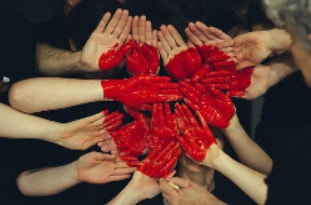 John also involved others in demonstrating support for Troy. The scene where John and the group present the jersey to Troy just jerks my tears. Then there’s what appears to be his ward releasing balloons in celebration of his son’s birthday. As John continued standing by Troy, many other opportunities to show support probably presented themselves. And they all helped Troy along his path. What if we singles involved one another in supporting each other? What if, instead of everyone doing their own thing, everyone reached out to include everyone? What if we each told each other, “Come talk with me,” “Come sit with me”, and “Come do what I’m doing with me”? Real friends bring everyone in. That may be the best support for singles dealing with their pain and grief, many of whom struggle unbeknownst to those around them. Let’s re-hoist friendship in all our interactions with each other. By listening to one another, seeing one another as brothers and sisters, and involving others in building community, we not only embrace but also embody true friendship. By bringing ourselves closer to each other, we bring ourselves closer to God. And that will bring us more joy in our journey.
0 Comments
Elder Christofferson approached belonging from a doctrinal perspective with practical application to belonging. That approach confirmed what we’ve been discussing here for years on Joy in the Journey Radio. But it also enlightened my understanding of what it means to belong. It’s easier to feel belonging when we truly understand the doctrine of belonging. See the commonalities 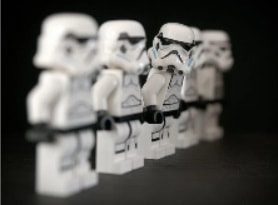 Elder Christofferson begins by listing the three parts of the doctrine of belonging: “the role of belonging in gathering the Lord's covenant people, the importance of service and sacrifice in belonging, and the centrality of Jesus Christ to belonging.” Let’s talk about how each of these parts relates to LDS singles. As the Lord gathers His covenant people across the world, we’d expect, as Elder Christofferson rightly notes, Church membership to become more diverse. We see that diversity today in every conceivable way, including life situation. This diversity offers great strength and richness but also great challenge as our biological hardwiring influences us to compare ourselves with others in order to assess how “normal” we are. Without context, such comparisons can demoralize and depress us. Elder Christofferson illustrated this effect in the story of Jody King, a married woman confronting infertility. As I listened to the heartrending emotions expressed in Sister King’s experience, I recognized a great parallel. You could change the details of her story from would-be-mother to would-be spouse, and the emotions would stay the same. We need to see less of the details differentiating us and more of our commonality as children of God. Elder Christofferson recognized that need when he taught,
We too should care about what others around us are becoming more than what they are today. Serve one another  In addition, we gain a sense of belonging within the Church as we serve and contribute to the larger Church community. This makes obvious sense and yet the realization of its truth escapes many of us precisely because it is so simple. We feel like we belong to a larger group when we do what those in the group do. Singles don’t do everything marrieds do (or at least they shouldn’t), and that distinction highlights the earlier distinction of identity (“I’m single and you’re married”) that destroys any feeling of belonging. But serving one another is something everyone can do. Being true to as many covenants as one’s made is something everyone can do. When everyone serves everyone else and turns their focus there, we see ourselves more doing what the group does and foster the sense of belonging we crave. Elder Christofferson recognized this truth as he shared,
How often have we singles focused excessively on our own unmet needs? Think back to such a moment in your life and consider whether you felt like you belonged to the larger Church community in that moment. However legitimate your unmet needs, focusing there always leads to feelings of isolation and abandonment, not belonging. Come unto Christ Of course, the highest and most important sense of belonging comes through Christ. We best promote that sense of belonging by nourishing a personal relationship with Him. We must spend time with Him daily. As I think back upon my many years of LDS singles life, I can remember many struggles with finding acceptance within my peer group. What helped me the most in those times was remembering He Who “came unto his own, and his own received him not” (John 1:11). Leveraging my struggle to feel closer to the Lord has helped me feel more belonging to Him, the only sense of belonging that really matters in the end. Elder Christofferson displayed that perspective as he declared,
LDS singles must live the doctrine of belonging in order to thrive and experience maximum joy despite their circumstances. As we identify as members of the covenant, strive to keep those covenants while serving one another, and spend time daily nourishing our relationship with the Lord, we can gain a sense of belonging to Him and His Church. And that will bring us more joy in our journey.
Yet when I applied this common cure, I found it didn’t really cure anything. All it did was make me forget myself for a time. When my service was done, I still lacked a companion, and the associated feelings with that lack returned all the more poignantly. Eventually, I learned why I felt the way I did and why service isn’t the difference. The apparent problem Service is bandied about as the bandage for lonely souls, and sure, I’ve felt better for a while as I forgot my problems for a time. But after serving I was always returned to my reality. The “problem” of being single and lonely was still there. So if it doesn’t really work, why is service dispensed so often to singles as the answer for their challenges? I’ve learned most people don’t want to get too involved because that means taking on their burdens and most have enough of their own to bear. It’s easier to give some glib advice so they feel like they’re helping without getting too involved. But there’s a complication: The advice is partially true. It’s not like service doesn’t have any effect. My problems did seem to go away while I served, even if it was only temporarily. That benefit evidences some effect from service. What dissatisfied me was the incompleteness of that influence. When the service was done, I was always left with myself and my life and the feelings associated with lacking a companion. My underlying condition was unchanged. The real difference  Eventually something did change for me, resulting in a realization of what makes the real difference. What changed? It was my thinking, of course! I began to see a new perspective on my situation. Service didn’t solve my problem because my problem wasn’t a lack of service. My problem was a lack of giving my all to what I did. As we’ve discussed countless times on the broadcast, happiness is giving your all to all the right things for you. Service is right for everyone, but I wasn’t happy from my service because I wasn’t giving my all to it. Thus, service became little more than a distraction from my real life, a way to fill time and momentarily escape my challenges. Changing the way I thought about service made all the difference. By giving my all to what I did while serving, I found a sense of fulfillment previously unknown. And that fulfillment yielded satisfaction long after the service moment had ended. The loneliness of being single had been replaced with a sense of connection to something much larger than myself. And it was all because I gave my all to what I did. The true answer 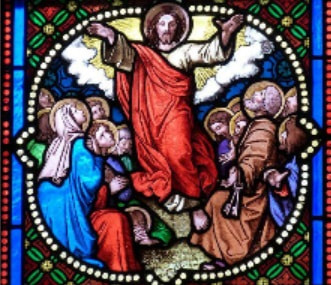 In the end, fulfillment comes from what you give of yourself while you do it. The Savior extolled the example of the widow who cast her last two mites into the treasury because, unlike the rich who gave some smaller portion of their greater wealth, she had given her all. And it was giving her all that made the difference. Likewise, LDS singles can make a difference in their lives when they give their all to what they do. Service isn’t the difference, but what we give of ourselves while we serve is. So instead of advising others to combat loneliness with service, we should advise them to give their all in contributions to others. That’s something we at Joy in the Journey Radio call a personal ministry. Ultimately, giving our all can bring us closer to the Savior Who gave His all for all of us. The meaning of His sacrifice comes not from His life but His willingly giving that life. When we give our all to what is right for us, we follow in those footsteps. Service isn’t the difference, but giving your all to what you do is. So don’t hold back. Give your all to all that is right for you. Not only will you find greater happiness, but you’ll fortify yourself against the challenges of life. And that will bring you more joy in your journey.
The suggested action for today carries the title “Let Your Love Shine” and encourages tagging three loved ones with a “top 3 things I love about you” message and invitation to do likewise. The three I wish to highlight don’t use social media, but I’ll highlight them all the same because I believe you can’t best feel your love until you let your love shine. The cat comes first First on my list is my cat Tashi. She died about eight years ago as unexpectedly as she’s impacted my life since. Last weekend while speaking with a friend grieving the recent death of her cat, I shared how I still feel Tashi with me, even though she hasn’t been with me physically for over eight years. That’s the first thing I love about Tashi. Our relationship was so strong I still feel her with me despite her death. Hearing my experience seemed to comfort my friend, suggesting perhaps she too could experience something similar. Tashi knew how to comfort me. She’d waltz into my lap as I sat discouraged, seat herself against me, and then look up at me as though saying, “How can you be sad when I’m here?” It amazes me she never failed to do that when I needed it. And she was such a character. I remember one Christmas when she chose her stocking for the fireplace that year. It’s a humorous story I’ll detail later in the program. Next comes my mother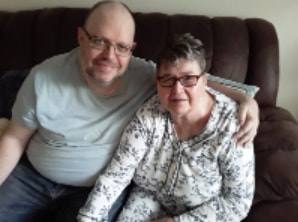 My mother’s the second of my top three. I’ve spoken about her before, most recently when I surprised her for her birthday. Her condition has since worsened, but my love for her hasn’t. My mother always thought constantly of her children. Every day she worked hard for our benefit. I remember one morning thinking I could delay my usual departure for the school bus. My mother called out a reminder to get going. But I delayed, missed the bus, and walked back in shame to confront my mother. Predictably upset, she still drove me to school. I love how that support was constant. Years later I was preparing to return to campus after the holidays to finish my master’s program. Just before I left, my mother and I knelt in prayer. I still remember her prayer for me, and it was the memory of that prayer that gave me the strength I needed to finish my program. She’s always supported me through the years. And I love that my mother taught me life skills, especially cooking. I can’t list all the times having that knowledge has helped me, but I can list teaching me how to cook among the many ways she’s blessed my life. Then comes Uncle Darryl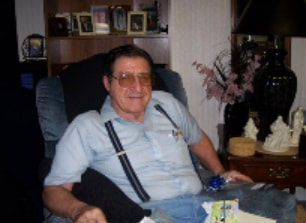 Then there’s Uncle Darryl. He’s actually my great great uncle. I never knew him well, but he’s had a profound influence on me. I love that influence, especially the respect it engenders for veterans. Uncle Darryl’s WWII experience left him so traumatized he couldn’t talk about some things for the rest of his life. His sacrifice in defense of freedom lasted some 65 years. I also loved his welcoming nature. I could always come by unannounced, and he’d stop and entertain my visit. What an example of gifting love through attention! And he always seemed sincerely interested in me, even towards the end as his faculties slipped. I won’t be tagging anyone since none of these three loved ones use social media. But I love them each. And I love the Lord Who blessed me with love from them and many others. Letting my love shine for them today is a small gift I can give in return. If you haven’t given that small gift today to three loved ones in your life, take a moment now and let your love shine. You’ll feel more of the essence of the Christmas season. You’ll invite others to embrace that spirit in following the Lord Whose expressions of love provide the reason for the season. And that will bring you more joy in your journey.
But I really wasn’t capturing the full depth of those words. Maybe I needed some time and distance as well as some more experience with the world to appreciate what he gave all of us. Indeed, you could say that’s one thing I’m learning. And after the program today, perhaps we all can say it’s one among many of what we are learning. Home-centered worship  Addressing the global pandemic, President Nelson shared four lessons he hoped we’ve all learned and won’t forget. I sense a greater sense of optimism in his words now than I did six months ago. That optimism increases my appreciation for his first lesson: The home is the center of faith and worship. I think most of us recognized the prophetic nature of the 2018 announcement regarding home-centered church. But I’m not sure that was true before COVID hit. I certainly didn’t recognize the significance of some of my pre-COVID promptings. For instance, shortly before the first lockdown I felt impressed to purchase white tablecloths. What do I need white table cloths for? I thought to myself. When am I ever going to use a white tablecloth? I found out soon enough. What a blessed privilege was mine to partake of bread and water in memory of my Lord and in my own home! I truly felt closer to my Heavenly Father in those moments than I had in any worship service in a chapel. In response to such an experience, President Nelson asked,
Considering what we need to do to increase the security and serenity of our own homes would be time well spent. Needing each other 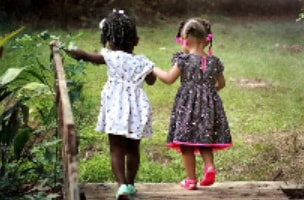 President Nelson’s second and third lessons, that we need each other and your priesthood quorum is more than just a meeting, seem especially intertwined. We really do have a unique opportunity to leverage the present pandemic to unify God’s children like the world has never before seen. But that will become reality only if, as President Nelson asked, our shared trial has drawn us closer to one another. These days it seems the pandemic is driving us farther apart. But if that’s true, it’s because we’ve forgotten the two commandments President Nelson declared could guide us — first, to love God, and second, to love our neighbor. I especially love President Nelson’s teaching that
Flip that around, and see the profundity of the Prophet’s teaching. Why has God sent us to earth in families and wards and stakes? He wants us to work together and help each other. Why has He asked us to serve and minister to each other? He wants us to work together and help each other. Why has He asked us to live in but not be of the world? He wants us to work together and help each other. One could apply that answer to this question: Why has God organized priesthood holders into quorums? Priesthood is indeed more than a church meeting. Hearing the Savior 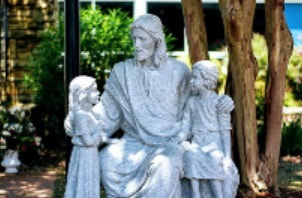 President Nelson’s final lesson from the pandemic ties the others together. The home is the center of faith and worship. We need each other. Your priesthood quorum is more than just a meeting. And we hear Jesus Christ better when we are still. As I just mentioned, the pandemic seems to be driving us further apart. We seem more agitated and contentious than ever. President Nelson confirmed we’re living in prophesied days of commotion and fear. He didn’t declare that commotion would be temporary. Rather, it’ll increase. But we need not be in commotion. If we can be still, we can hear the Savior’s voice speaking peace and confidence to us. As President Nelson taught,
Making time for quiet reflection will become more and more essential as the world becomes more and more contentious. If we will do as the Prophet instructs, we will see the fulfillment of his promise that “the future is bright for God’s covenant-keeping people.” And that will bring us more joy in our journey.
Language reflects thinking  Now this isn’t the f-bomb many of you are thinking of. This was in sacrament meeting, after all, and the speaker radiated mainstream Mormondom. But how can you understand what I’m talking about without me being just as profane? Since I can’t think of any other way to do it, here goes. The f-bomb she dropped was family ward. Yes, that phrase is profane. Words mean things. Language matters. And anyone who thinks it doesn’t — that this is just some petty concern — just doesn’t understand how language works and its effect upon people. Simply put, the language we use reflects the way we think. It expresses culture. And as we’ve discussed often on the broadcast, the traditional culture of the LDS community has revolved around being married with kids. Some singles have kids, but by definition no single is married. So using a phrase like family ward just perpetuates a culture which excludes singles. The nature of language  This isn’t something that’s just in the heads of LDS singles. Nor is it solely a product of how singles think, something that can be corrected with a change in perspective. For those who think it is, let me tell you about the cookie jar. Yes, I said the cookie jar. Why do we call the cookie jar a cookie jar? The simple truth is because it’s a jar in which we place cookies. If you take the lid off a cookie jar, you expect cookies to be inside. That’s why it’s called a cookie jar. If there were peanuts inside, you’d call it a peanut jar. If there were bolts inside, you’d call it a bolt jar. That’s just the nature of language. Calling a container a cookie jar is like saying that is where cookies belong. Family ward works the same way. It says families belong in that congregation, implying that people without full families don’t belong. Again, this isn’t just in singles’ heads. It’s the nature of language, which reflects how we think. And I’ve seen that play out. I can’t tell you how many times I’ve encountered marrieds who merely tolerated my presence in their ward. Their attitude definitely said, “You can come here if you want, but you really belong over there in that singles ward. If you do go there and get married, then you can come back and join us here in the main group.” A higher level of thinking  As I sat there in sacrament meeting, I wondered how I should approach the speaker about her f-bomb. I didn’t really know her personally, nor did I have much opportunity to know her. She and her husband has just moved into the ward. As young as they are, I wanted to believe she said what she said out of ignorance. In the end, I felt good about approaching her through an email message to her husband. I tried to be delicate and firm at the same time, in the end offering the suggestion to replace that f-bomb with general membership ward or, if that was too much of a mouthful, shorten it to general ward. I also expressed willingness to entertain other suggestions. I never got a reply to the email. But I can surmise based on comments she made in later weeks in Sunday School that she realized how insensitive she’d been and wanted to change. And I felt satisfied with that. If you’re still using that vile expression, please stop droppin’ f-bombs. The language we use will reflect what we truly embrace in our thinking. Let’s embrace a more inclusive culture within our LDS community by using language that reflects truly inclusive thinking. When we do, we’ll grow from seeing each other more as God sees us. We’ll benefit more from the contributions we make into each other’s lives. And that will bring us more joy in our journey.
I’m thankful President Oaks publicly declared those ideas. I’m also thankful he focused on eternal principles throughout his remarks, especially the principle of moral agency. The Constitution certainly isn’t perfect, but it does support that society most free to exercise agency. Thus, we should all be defending our Constitution, despite its flaws and limitations. Understand the threats to agency President Oaks began his remarks by establishing his authority. A former clerk to the chief justice of the US Supreme Court, law professor, and justice on the Utah Supreme Court, he’s certainly more than amply qualified to have a platform. But the qualification he listed last and “most important” intrigued me most. He’s been an Apostle of Jesus Christ for 37 years. As President Oaks described, that means he’s “responsible to study the meaning of the divinely inspired United States Constitution to the work of His restored Church.” Here he segues into a discussion of moral agency. God inspired the Founding Fathers to assemble a system of government that would maximize the exercise of moral agency. And as we know, agency is key in our Heavenly Father’s eternal plan for His children. Defending the Constitution therefore promotes God’s plan of happiness. President Oaks then mentioned some of the threats to the undergirding principles of the Constitution. Said he,
The threats to the Constitution, and by extension to our Heavenly Father’s plan, are very real and very much growing. Learn and perform your duty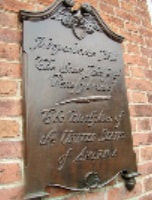 So can we do about it? What should we do to defend the Constitution? President Oaks provides some answers. I love how he starts by encouraging optimism, declaring “we should trust in the Lord and be positive about this nation’s future.” Founded in faith and positive thinking, we should pray for leaders in all nations and then seek to exercise a righteous influence civilly, peacefully, and legally. Also, in these divisive times, “we should seek to moderate and unify.” These days, everyone loves to talk about their rights and what they’re entitled to receive. But few speak of their duties and what they should give. It’s people performing their duties that make the rights of all available. That’s why I applaud President Oaks in listing three duties every good citizen has.
That power-packed list reveals more I need to do to support the Constitution. And I love how President Oaks reiterated King Benjamin’s counsel not to do everything at once (Mosiah 4:27). We all have different seasons in life, and the combination of actions appropriate in one season may not be appropriate in another. Get busy doing your part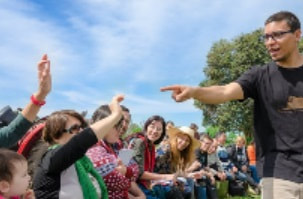 Let’s truly celebrate Independence Day by defending our Constitution. Perhaps the best place for you to start is where I’m starting — by reading and becoming more familiar with the actual document itself. Or perhaps you need to consider running for a position in an upcoming election. Or maybe you need to call or email an elected official about a current issue. What you do today may not be what you do tomorrow, but we should always be doing something. The threats to the Constitution President Oaks described have grown precisely because far too many of us have been doing nothing in civic life. We’ve been busy focusing on our careers, our loved ones, and our own lives, and enough responsible people have been so absorbed in that busyness that we’ve allowed irresponsible people to hold office. The Constitution has imperfections, but one thing it does right is give ultimate power to the people. Let’s celebrate the birth of our nation by learning about and then committing to safeguard that power. And the best way to safeguard it is to exercise it civilly, peacefully, and legally. When we persist in so doing, we can enjoy the fruits of freedom to exercise the moral agency essential to God’s plan and preserve that gift for the next generation. And that will bring us more joy in our journey.
Early in the broadcast I got the feeling there was an elephant in the room no one was talking about. As time progressed, it seemed participants danced around the edge of that elephant while never wanting to go so much as near it with a 50-foot pole. And here’s all the answers they gave in just two words: more church. For LDS singles in pain, more church is not the answer. Service should heal, not cover  Don’t misunderstand. I’m not against church. I’m just recognizing for anything in life there’s less effective thinking and more effective thinking. Often broadcast participants approached the more effective perspectives LDS singles need but then refused to go all in, opting instead to dance around the edges. Here I am watching them approach a more effective perspective, cheering them on, shouting, “Yes! Yes! Now dive on in!” only to watch them sit on the dock, smile, and say, “Just stay on the covenant path. It’ll all work out!” It left me with the amplified mixed feelings cited earlier. Take service, for example. Service is great, but service alone is not the answer. Yes, it’s true far too many singles are far too self absorbed. Your focus determines your reality, so if you’re super focused on your problem, you’re reality will be super problematic. When you focus on the obstacle, you create a reality of obstruction, limitation, and frustration. Service can and should be part of the solution. But just going through the motions doesn’t flip your focus, and that’s what’s needed to flip your reality. The way many push service in counseling singles turns it into a bandage, and singles feeling pain want healing, not a bandage. It’s more effective to show how service can help solve the problem. But how do you do that when you won’t even go near the elephant in the room with a 50-foot pole? Community should be felt, not just mentioned 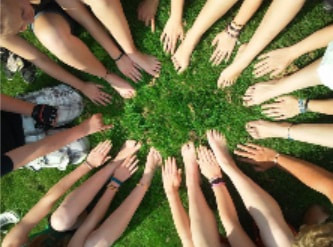 The idea of community is another example of broadcast participants approaching a great idea and then just dancing on the edges. I love Sister Eubank in this broadcast because she speaks from a place of experience; she’s actually living LDS singles life. But even she seemed to stop short. I was all giddy when early in the event Sister Eubank started talking about how she loves belonging to a community. “Yes!” I screamed. “Now dive in! Talk about how we need to create and grow that sense of community! Talk about personal ministries!” But she didn’t dive in. She backed off, leaving me to wonder what if any sense of community I and many other LDS singles can expect with the other LDS singles who live where we do. Very often, that answer is none, further feeding my mixed feelings about the broadcast. We need more effective thinking  I’m not trying to tear down. I extremely appreciate and celebrate the Church, which hasn’t done much for this specific demographic, for finally doing something more. I just wish they’d do something more effective and not just something more. Certainly the broadcast touched multiples times on how singles can find more joy in their journey. But many singles won’t be helped by platitudes that simply dance around the edges of more effective thinking. By itself, more church is not the answer. We’ll dive deeper in the program today into all that. The solutions we seek won’t come at the same level of thinking that produced our problems. We need higher, more effective thinking. Service and staying on the covenant path are certainly parts of that, but they won’t get singles far who don’t live with intention and take actions designed to encourage the results they want. Happiness is giving your all to all the right things for you. When you partner with the Lord, He can show you all that’s right for you and support you in giving your all to that all. Doing that will bless your life and the lives of those you touch. And that will bring you more joy in your journey.
And speaking of videos, there on the main Light the World web page you can find the latest Nativity video from the Church. This is an expansion of the clips that the Church released last year into a short film lasting around 18 minutes. I’m glad I had a box of tissues nearby when I watched it. I was so overcome with emotion, especially near the end when the three wise men and their cohort kneel before the boy Jesus. It is hands down the absolute best depiction of the Nativity story I have ever seen. I won’t belabor this because, as the best program the Church has offered yet, it is quite simply self-explanatory. So learn more about the Church’s latest effort, and then decide how you will share the light of Christ this Christmas season. Whether you participate in the Church’s Light the World campaign or you embrace your own effort, you can add your contribution to that of others all over the world in helping others to feel our Savior’s love this Christmas season. Together we can light the world one by one. And that will bring us more joy in our journey.
That's the place where many of us live, or rather the place where many of us exist as the walking dead, wandering zombies in lives on autopilot. We want a better life, we want to change for the better, and many of us sincerely intend both to do better and to become better. Yet the smallest good deed is always better than the grandest intention. Don't just dream Why such resistance to embracing positive change? We keep dreaming but never doing. Why is that? It's not because we're lazy, at least not for most of us. We're biologically hardwired to operate out of habit. That means we're naturally designed to maintain a status quo, and that means resisting change because change by definition doesn't maintain a status quo. Dreams, on the other hand, don't threaten the status quo, because dreams don't really change anything. Dreaming doesn't require any change in habits, so your natural design can continue business as usual while you dream to your heart's content. And so, many of us dream and dream. And the life we have in return is the same and the same. Then when we recognize some undesired feature of this same but actual life, the only response many give is to complain and dream of a different life. But only when you consciously choose to act against your biological design to operate out of habit and step towards your dreams will they ever begin to come true. Results come from one thing and one thing only — action. To get a result you've never had, you've got to do things you've never done. You must act! Have a little faith  And the best part is it doesn't take a lot to get a lot. Goodness has such inherent power that a little can go a long way. Seemingly small actions can produce powerful results. Nephi once wrote, "And thus we see that by small means the Lord can bring about great things" (1 Nephi 16:29). He was speaking about the Liahona, the small compass that guided him and his company to the promised land. Alma later spoke to his son Helaman about that compass, saying, "because those miracles were worked by small means it did show unto them marvelous works" (Alma 37:41). By exercising a little faith, the spindles pointed the way those early sojourners should go. But because the action needed was small, it was also easy to forget. As Alma explained,
It works both ways. Seemingly small actions can produce powerful results. With as long as I've been single, I've attended literally thousands of singles activities, but the small handful of treasured memories I have of those that actually made a difference in my life are of the small acts of kindness that others extended towards me. Those seemingly small acts produced a powerful result in me that I still carry with me. Get to work  Each of us could confess to having similar moments in our lives. Seemingly small acts of goodness someone else extended to us have touched us, lifted us, strengthened us, and encouraged us when we needed it. We all can and should pay that forward. For me, that's the best aspect of these actions. They're so small anyone can do them. You don't need to be terribly gifted in anything. In fact, you already have all the gifts you need to wield the power within seemingly small actions — the gifts of agency and time. When you choose to fill your time with the seemingly small actions that can make a difference in the lives of others and your own, you can effect real change in your life. So what are you waiting for? Stop wishing and start working. The smallest good deed is always better than the grandest intention. Only action produces results. When you take the seemingly small actions to share goodness with others or to improve yourself, you move yourself closer to making your dreams reality. And with continued, consistent effort over time, you'll begin to see yourself moving closer to your dreams. And that will bring you more joy in your journey.
|
Author
Howdy! I'm Lance, host of Joy in the Journey Radio. I've been blogging about LDS singles life since 2012, and since 2018 I've been producing a weekly Internet radio show and podcast to help LDS singles have more joy in their journey and bring all Latter-day Saints together. Let's engage a conversation that will increase the faith of LDS singles and bring singles and marrieds together in a true unity of the faith.
Comment
Joy in the Journey Radio encourages the free discussion of ideas but reserves the right to remove and/or block comments which do not conform to LDS standards.
Donate
Joy in the Journey Radio offers many free resources to help LDS singles everywhere, but it certainly isn't free! Help Joy in the Journey Radio in its mission to improve the lives of LDS singles by donating today.
Posts by Month
December 2022
Categories
All
|
||||||||||||||||||||||||||||||||||||||||||||||||||||||||||||||||
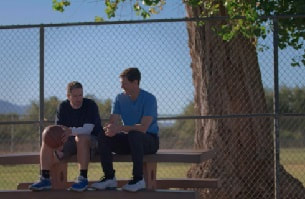
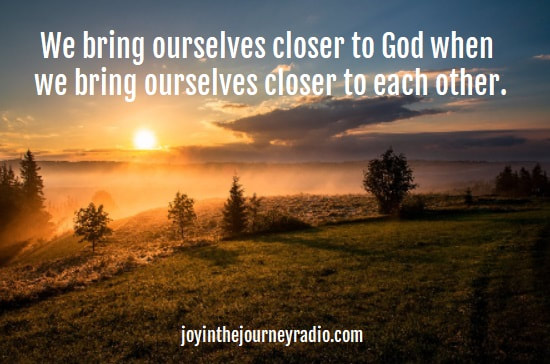
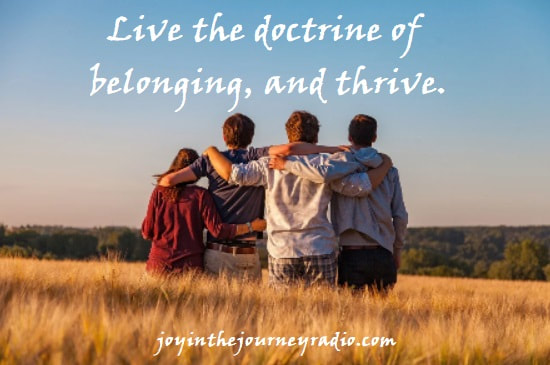

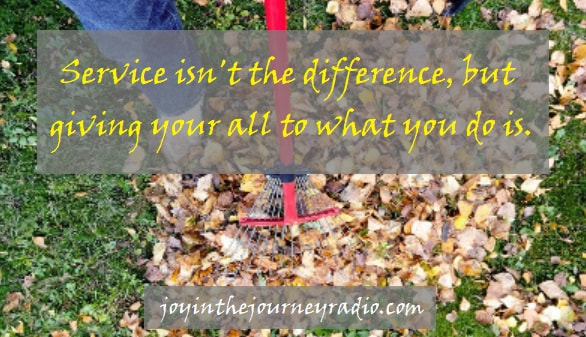
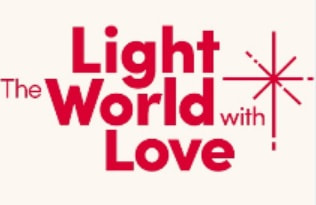
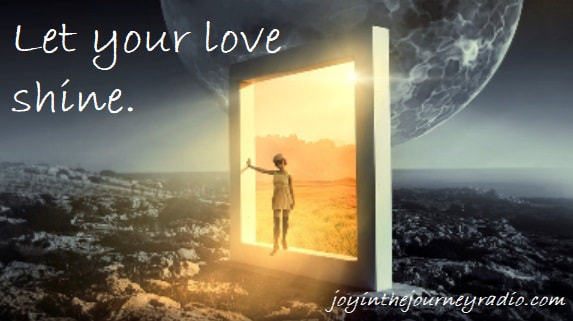
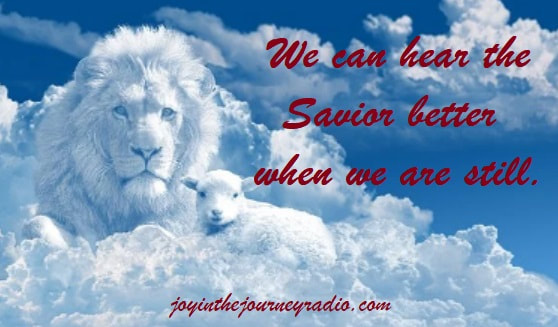

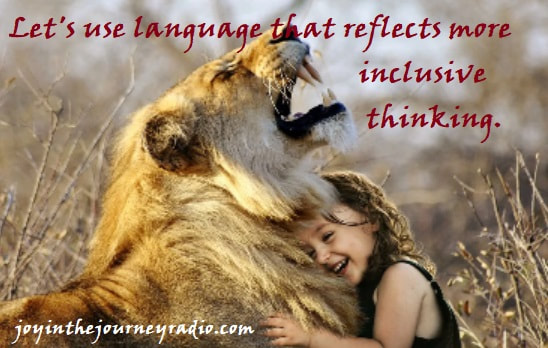
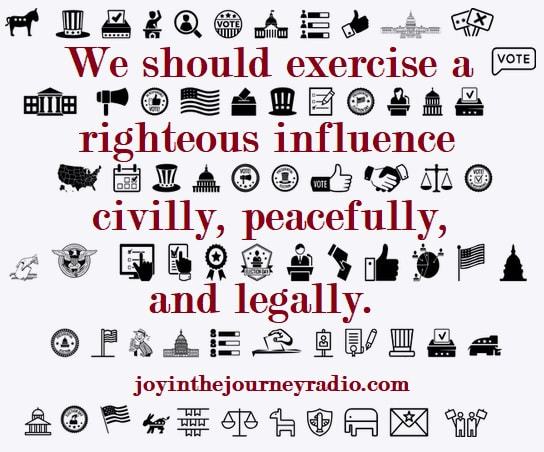
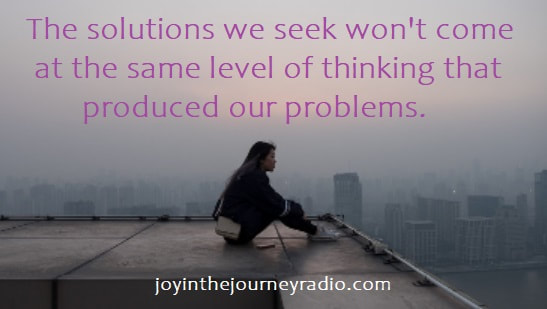
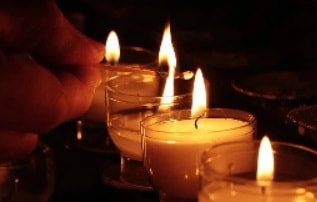
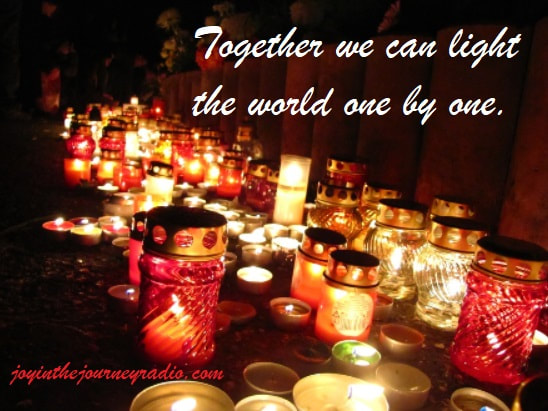

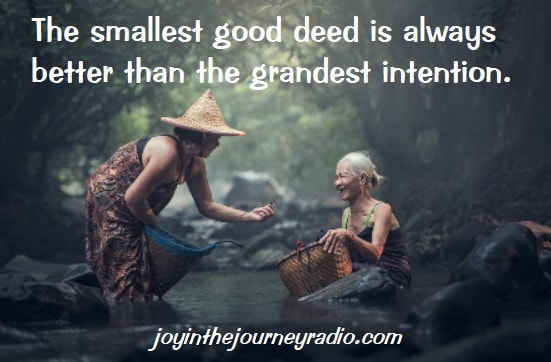
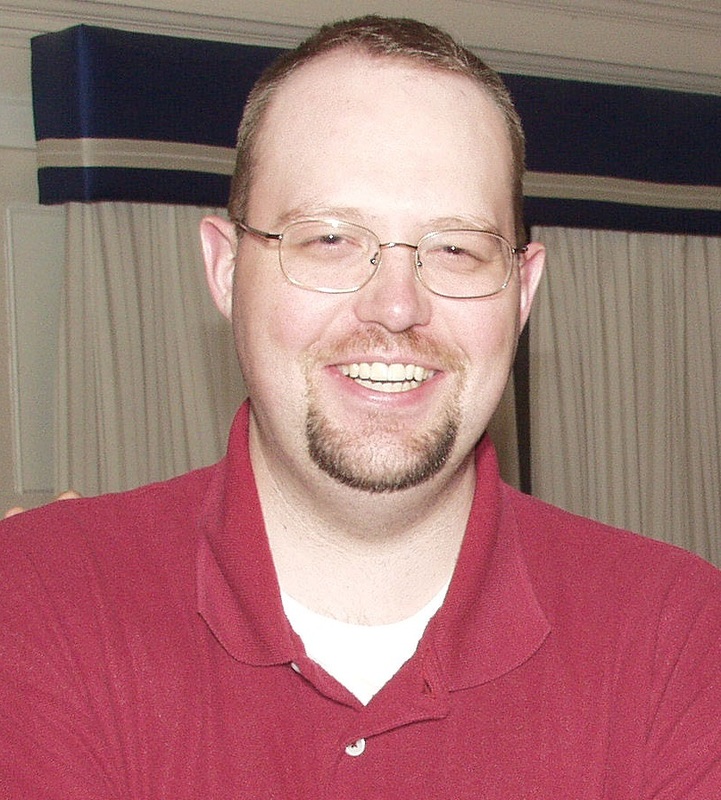
 RSS Feed
RSS Feed